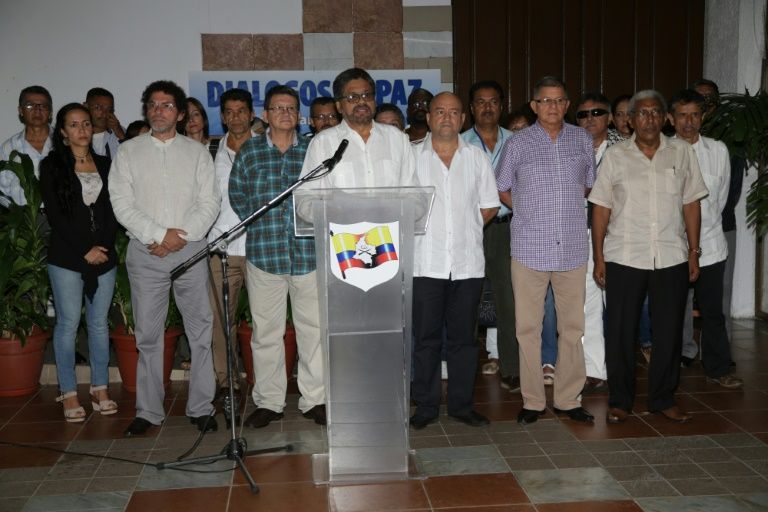-
Tips for becoming a good boxer - November 6, 2020
-
7 expert tips for making your hens night a memorable one - November 6, 2020
-
5 reasons to host your Christmas party on a cruise boat - November 6, 2020
-
What to do when you’re charged with a crime - November 6, 2020
-
Should you get one or multiple dogs? Here’s all you need to know - November 3, 2020
-
A Guide: How to Build Your Very Own Magic Mirror - February 14, 2019
-
Our Top Inspirational Baseball Stars - November 24, 2018
-
Five Tech Tools That Will Help You Turn Your Blog into a Business - November 24, 2018
-
How to Indulge on Vacation without Expanding Your Waist - November 9, 2018
-
5 Strategies for Businesses to Appeal to Today’s Increasingly Mobile-Crazed Customers - November 9, 2018
Colombia and rebels will seek bilateral ceasefire
The government of Colombia and the FARC (Revolutionary Armed Forces of Colombia) guerrillas agreed Sunday to a bilateral ceasefire, a major step forward in trying to ease tensions between the two sides who have recently seen rising hostilities.
Advertisement
In a joint statement read in Havana on Sunday, negotiators for both sides said the de-escalation would start July 20.
Bogota and FARC have been engaged in peace talks for more than two years in an attempt to finally end the longest war in South American history.
Colombian President Juan Manuel Santos welcomed the move by the rebel guerrilla group, but stated FARC needs to do more. “Some day, it’s probable that they won’t find us around the table in Havana”, Humberto De la Calle said, as reported in Reuters.
The government’s lead negotiator emphasised that de-escalation was not tantamount to a government ceasefire, and that the armed forces would respond based on FARC actions.
The aim of the plan is to “strengthen the confidence of Colombians in the peace process” as well as between the negotiating delegations, facilitate the shaping of agreements on the outstanding points on the roadmap governing the talks and create the conditions for a bilateral and definitive cease-fire. Cuba and Norway have offered to act guarantors in the talks, with the help of Chile and Venezuela.
“I want to tell the FARC in all seriousness, this could end”.
Santos has reason to be on his guard, as FARC’s previous unilateral ceasefire, which was called back in December, ended after the group killed 10 soldiers in April.
During that truce, government forces stepped up attacks on rebel camps, the FARC alleges.
Despite the escalation in the conflict since then, which has involved several attacks on oil and electrical infrastructure by the FARC as well as increased casualties on both sides, negotiations in Havana have continued apace.
Advertisement
Since the truce ended, about 30 rebels have been killed in army operations and recent surveys show the public is increasingly wary about the peace process.





























